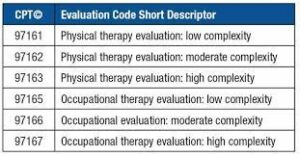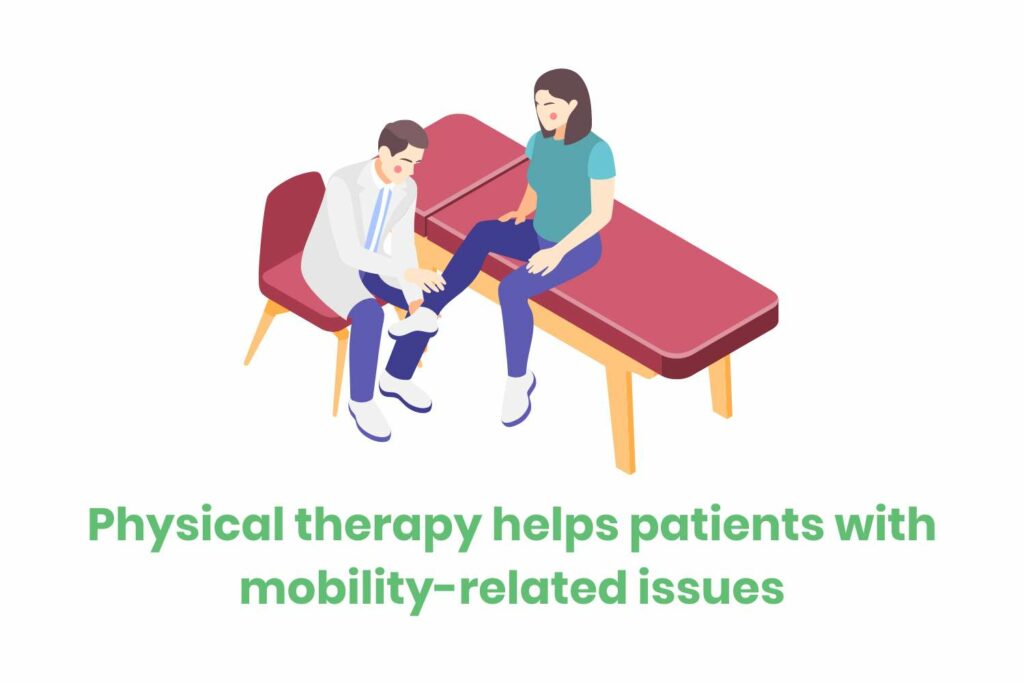Physical therapy is an important part of the rehabilitation process for many patients. However, it is important to make sure that physical therapy is effective and provides the patient with the best possible care. This can be done by regularly re-evaluating PT treatments. In this blog post, we will discuss the importance of CPT codes for pt re-evaluation.
Contents
What Is PT Re-evaluation CPT Code?

The PT re-evaluation CPT code is a code that is used by physical therapists to report the process of formally reassessing a patient’s condition after an initial evaluation. This type of code is important for both the therapist and the patient because it ensures that progress is being made and that any changes in the patient’s condition are documented.
The PT must use three levels of codes to report their services:
- Low Complexity(97161)
- Moderate Complexity(97162)
- High Complexity(97163), and replace the 97001 code
The New Revaluation code(97164) replaces 97002.
What Are The Components Used In New Evaluation Code?

The components of the new CPT code are:
- A new patient is defined as someone who has not received physical therapy from the provider within the past three years.
- The initial evaluation must be performed by a licensed physical therapist.
- The evaluation must include a review of the patient’s medical history, a physical examination, and an assessment of the patient’s functional abilities.
- The evaluation must be documented in the patient’s medical record.
- A plan of care must be developed, and the patient must be given a copy of the plan.
Should You Use The New Code?
In order to report this code, the therapist must have completed a comprehensive re-evaluation of the patient. This code cannot be reported more than once every eight weeks by the same provider.
You should use the new code if:
- You are a physical therapist who performs initial evaluations.
- You want to be reimbursed for your time spent performing evaluations.
- You want to ensure that your patients receive a thorough evaluation and are given a copy of the plan of care.
You should not use the new code if:
- You are not a physical therapist.
- You do not perform initial evaluations.
- You do not want to spend more time with each patient.
The new CPT code for PT re-evaluation is important for physical therapists who perform initial evaluations. The code allows physical therapists to be reimbursed for their time, ensures that patients receive a thorough evaluation, and allows physical therapists to document their evaluations in the patient’s medical records. The drawbacks of the new code are that it requires physical therapists to spend more time with each patient and it is unclear if insurance companies will reimburse physical therapists for the new code. You should use the new code if you are a physical therapist who performs initial evaluations.
Three Levels Of Physical Therapy Evaluation
To correctly select the evaluation level for physical therapy, the following components must be considered: history, examination, clinical presentation, and clinical decision-making.
A level I evaluation is the most comprehensive and is used when there is little to no knowledge about the patient’s condition. This level of evaluation is similar to an initial visit.
A level II evaluation is used when there is some knowledge about the patient’s condition. This level of evaluation is typically used for follow-up visits.
A level III evaluation is the least comprehensive and is used when there is a great deal of knowledge about the patient’s condition. This level of evaluation may be used for patients who have been in physical therapy for some time and whose condition has not changed.
The most important factor in choosing the correct level of evaluation is clinical decision-making. The therapist must use their clinical judgment to determine the best level of evaluation for each patient.
CPT codes are used to report medical procedures and services to insurance companies. They are also used to record statistics about medical care. There are three CPT codes for physical therapy evaluations 97161, 97162, and 97163.
How To Use This Code?
The code is used to report a comprehensive re-evaluation of a patient who has been previously seen for physical therapy services. This code should only be reported once every eight weeks by the same provider.
This code includes a comprehensive re-evaluation of the patient’s condition, medical history, and current goals. The therapist will also review the patient’s progress and make any necessary changes to the treatment plan.
Why Is This Code Important?
This code is important because it helps to ensure that patients are receiving the best possible care and treatment. By reporting this code, therapists are able to document the progress of their patients and track any changes in their condition. This code is also used to determine Medicare reimbursement rates for physical therapists.
- It allows physical therapists to be reimbursed for their time spent performing evaluations.
- It ensures that patients receive a thorough evaluation and are given a copy of the plan of care.
- It allows physical therapists to document their evaluations in the patient’s medical record.
What Are The Drawbacks Of The New Code?
The drawbacks of the new code are:
- It requires physical therapists to spend more time with each patient.
- It may lead to longer wait times for patients to see a physical therapist.
- It is unclear if insurance companies will reimburse physical therapists for the new code.
Conclusion
It may be concluded that pt re-evaluation CPT code is very important in the process of physical therapy. This code is very essential in order to get accurate reimbursement for the services provided by physical therapists. The code also plays a significant role in ensuring that the physical therapist gets paid for the services rendered. Without this code, it would be very difficult for physical therapists to get the correct reimbursement for their services.
Physical Therapy help patients recover from pain. If you’re experiencing Back pain, Shoulder pain, Knee pain, Neck pain, Elbow pain, Hip pain, or Arthritis pain, a physical therapist at MantraCare can help: Book a physiotherapy session


